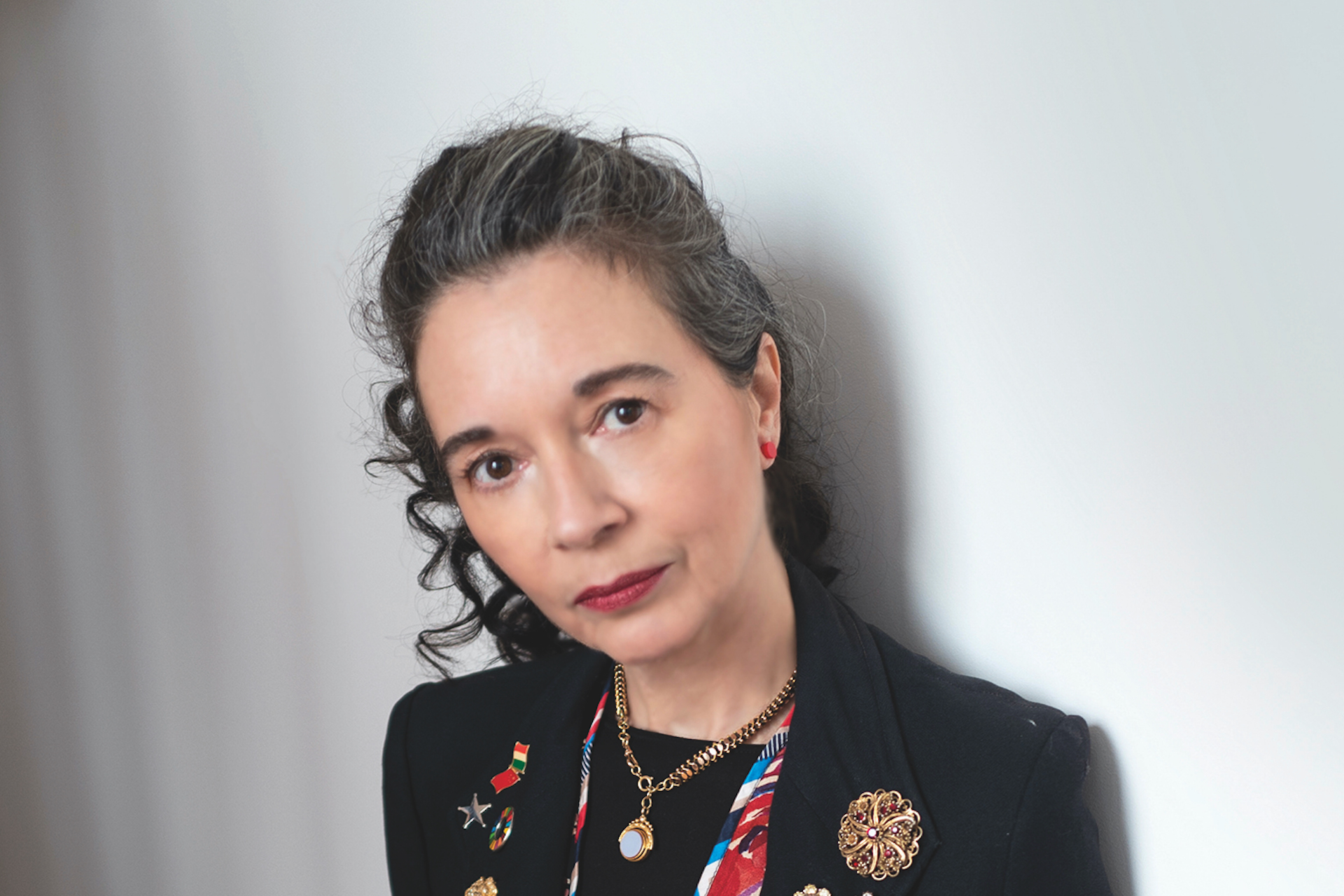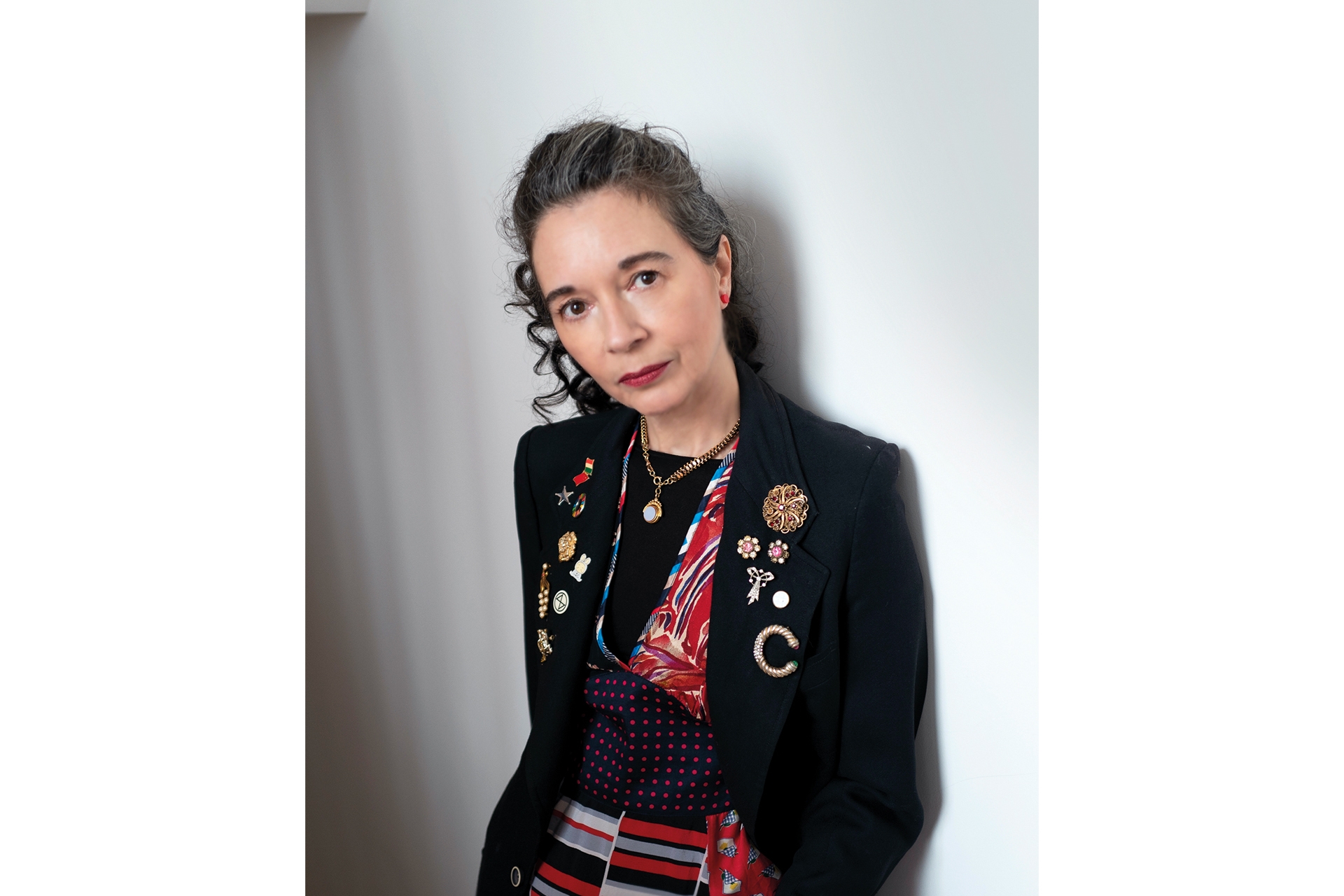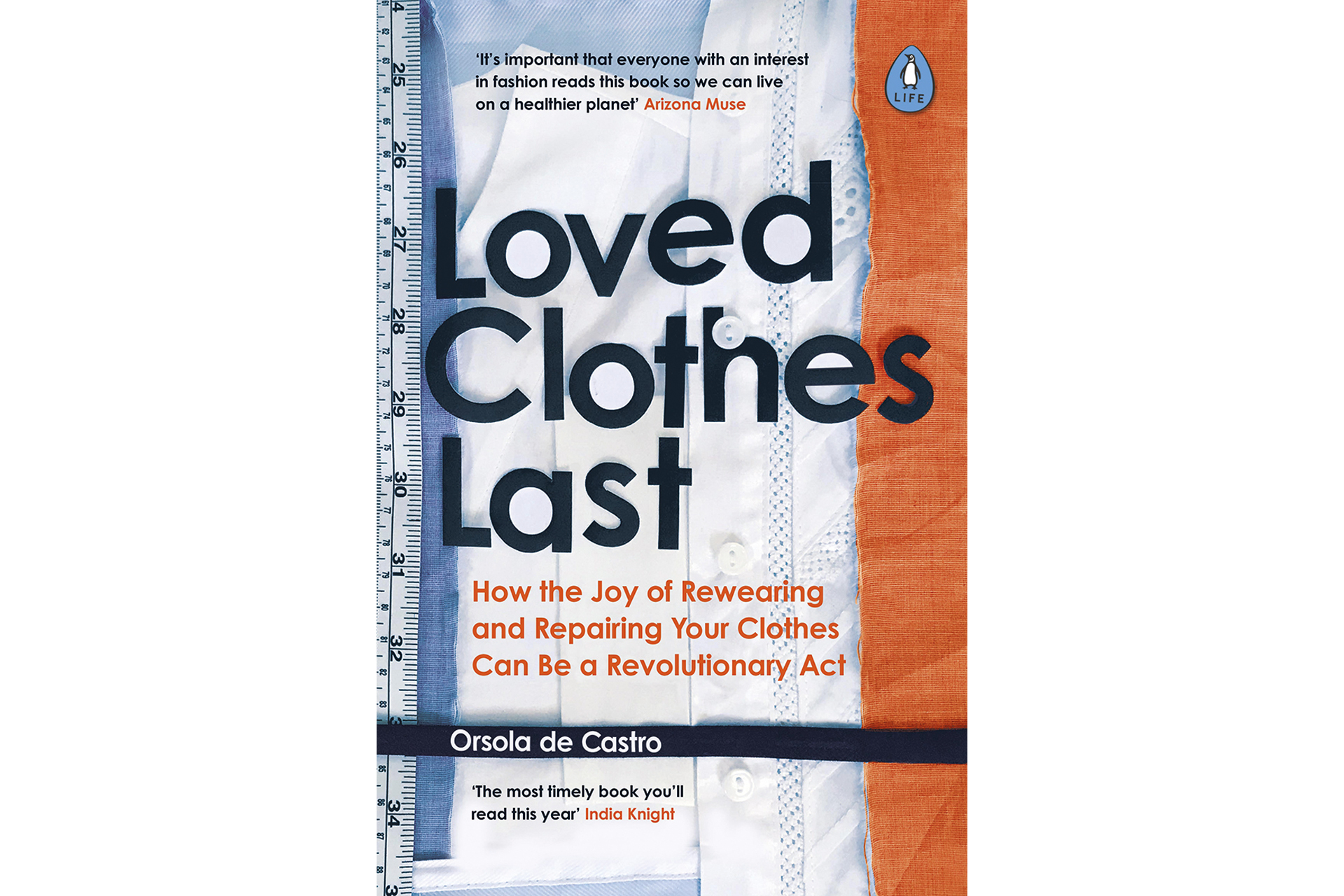My Little Green Book: Educating Yourself with Orsola de Castro
By
2 years ago
The original campaigner for sustainable, ethical fashion

Orsola de Castro advocates for educating yourself in style, says Lisa Grainger.
My Little Green Book: Orsola de Castro

Orsola de Castro. Photo: © Tamsin Haughton
Few women in their fifties are role models to teenagers. But then not everyone is as tapped into the world of sustainable fashion as Orsola de Castro.
The 56-year-old Italian-born, Peckham-based fashion lover has been at the forefront of ethical clothing for over a quarter of a century, and there’s very little she doesn’t know about it. In the nineties, before anyone had heard of upcycling, she’d co-founded From Somewhere, producing cool collections using factories’ textile waste. Then she curated Estethica, the first ever showcase of ethical clothing at London Fashion Week, while helping brands such as Topshop, Speedo and Tesco create more sustainable lines, and lecturing at Central St Martin’s. All while advising luxury brands, having four children (one, the influencer Elisalex, who founded the By Hand London sewing-pattern business, and another who’s a professional darner) and publishing a book last year, called Loved Clothes Last (Penguin Life, £8.99).
It is Fashion Revolution, though, which has made her a household name around the world. Co-founded in 2013 with Carry Somers, the fashion activism movement has become the biggest on earth, led by academics, designers, organisations and key opinion formers in 92 countries, with billions following its #WhoMadeMyClothes campaign.
The organisation has, she admits, ‘become bigger than we ever imagined’, as the demand for accurate information grows. ‘We are in an era of rampant greenwashing,’ she says passionately, ‘and people want to be informed because brands are lying bare-facedly.’

Take the Chinese brand Shein, she says, which has made a big deal of using a small percentage of recycled polyester. ‘That helps at the point of extraction, but not of care – we all know the terrible effects of polyester [which breaks up during washing and ends up the ocean, or takes centuries to break down in the soil]… Then we have H&M recently inciting customers to buy their conscious collection fast. You want to laugh!’
We all need to be informed about the clothes industry, Orsola insists, not only because it generates 10 per cent of the world’s carbon emissions, emits toxic waste into our water and earth and dumps millions of tons of unwanted apparel on poorer countries (about 336,000 tons a year goes to waste in the UK alone). But also because while many fashion companies make enormous profits, its workers are often paid very low wages – or in the case of the Rana Plaza disaster in Bangladesh, are killed at work.
It was the collapse of the Rana Plaza fashion factory almost 10 years ago, killing 1,134 workers and injuring more than 2,500, that galvanised de Castro and Somers into forming Fashion Revolution. Since then, the non-profit has helped to make the public aware not only of who made their clothes but what they’re made of, while campaigning for improvements that range from higher wages for artisans in India and cleaner rivers in Brazil to better environmental education in Slovakian schools.
The point of the campaigns is not to stop us buying beautiful things, says the fashion-lover. They are to educate us to buy better and to treat what we have with more care: to handwash, mend, alter, repurpose and love what we have (her favourite sweater, she says, is more famous than she is: adorned with brooches to cover holes, beads, sequins and colourful darning ‘which I think of as decoration with a memory’).
Ultimately, it’s about trying to make us think of our clothes as an extension of our skin, ‘a manifestation of who we are and what we believe in’. As Orsola puts it: ‘The world is in a state of decay. You have to decide whether you are the sort of person who is prepared to plaster over a wound or someone who addresses the cause.’
READ MORE
My Little Green Book: Fairer Fashion with Safia Minney / My Little Green Book: Surfers Against Sewage



